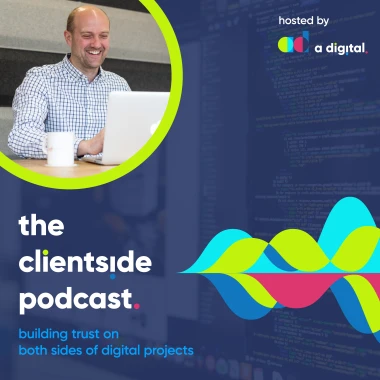
Essential Skills for Digital Marketers with Andrew Armitage
The Clientside Podcast
Following our last episode on digital skills, in the absence of a guest for this episode, Andrew Armitage follows up by talking about the skills that he feels every digital marketer (or arguably just marketers, period) should have to help them do their best work when it comes to managing website content, creating audio and video material, analysing data and creating graphics.
Listen on your smart device or read the transcript below
There are some really good reasons why having some awareness of how code works will help you [as a digital marketer].
Andrew Armitage Tweet